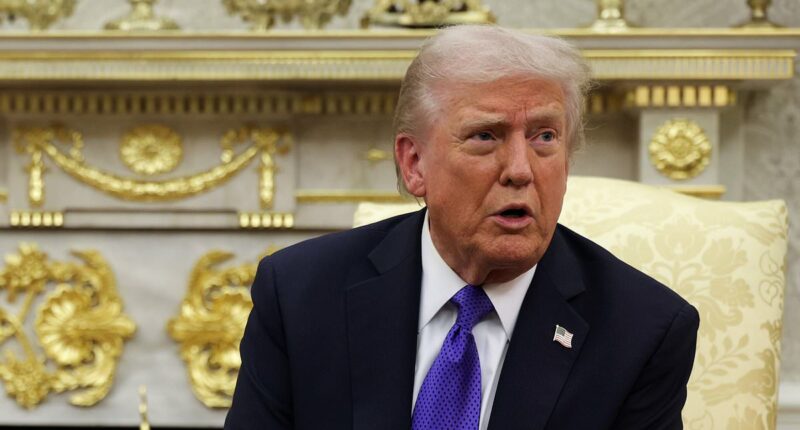Share this @internewscast.com

President Donald Trump has clearly delineated a boundary that could lead to his administration withdrawing support from Israel, especially as the nation navigates a precarious ceasefire with Hamas. The critical issue at hand is the annexation of the West Bank. Trump emphasized in a cover story for Time Magazine that the United States would withdraw its support should Israel proceed with annexation plans. During his recent visit to Israel, Vice President JD Vance strongly expressed his disapproval, describing the Israeli Parliament’s narrow vote in favor of annexation as a “personal insult” to the Trump administration, which has been a steadfast ally to Israel.

Both Trump and Israeli Prime Minister Benjamin Netanyahu stand against the annexation, although there are right-wing elements within Israel’s government that advocate for it as a means to block Palestinian statehood. Trump has been firm in his stance, cautioning that any move towards annexation would face significant resistance from the U.S., underscoring his commitment to the Arab nations. “It won’t happen because I gave my word to the Arab countries,” Trump stated in his interview with Time.

On the legislative front, the likelihood of annexation passing through the multiple voting rounds required in Israel’s Knesset remains slim. Netanyahu has the option to defer the proposal even if it reaches an advanced stage. Observers suggest that the symbolic 25-24 vote by hard-liners was intended to undermine Netanyahu during Vance’s visit. As Vance prepared to leave Israel from Tel Aviv’s airport on Thursday, he condemned the vote as a “very stupid political stunt,” highlighting the complex political theater at play.

‘I personally take some insult to it,’ the vice president added. ‘The policy of the Trump administration is that the West Bank will not be annexed by Israel.’ It’s especially concerning as Trump’s peace deal aimed at ending the two-year-long war between Israel and Hamas teeters on a fragile balance. Secretary of State Marco Rubio acknowledged before departing for Israel on Wednesday that the Knesset vote could jeopardize the agreement to bring an end to the war in Gaza.

‘President Trump has already made it clear that we do not support such moves right now,’ Rubio said. ‘We are concerned about anything that could undermine what we are working on.’ Trump announced in late September a 20-point plan for an end of war in Gaza with a deadline for Hamas to accept by October 5, 2025 with threats of escalation if it was rejected.

The deal was brokered and mediated by Egypt, Qatar, and Jordan and included a phased ceasefire, hostage release, demilitarization and reconstruction plan for the war torn Palestinian enclave. Trump believes a cleaned-up Gaza could attract tourism and has compared it to beautiful and luxurious destinations like Dubai, Monaco and the French Riviera. His deal includes a lengthy and likely very pricey plan to make war-torn Gaza a sought-after vacation spot. The plan is holding but frangible in the early stages.

The ceasefire is active, major hostage exchanges have occurred and aid is flowing into Gaza. But there are still some outstanding issues straining the deal – like failure to return deceased hostages’ remains and Israeli political moves to annex the other Palestinian enclave in the West Bank. The United Arab Emirates, a key U.S. and Israeli ally in reaching peace in Gaza, insists annexation would be a ‘red line.’ Some right-wing members of Israeli Parliament are upset over the ceasefire and believe the Jewish state made too many security sacrifices in the deal.








